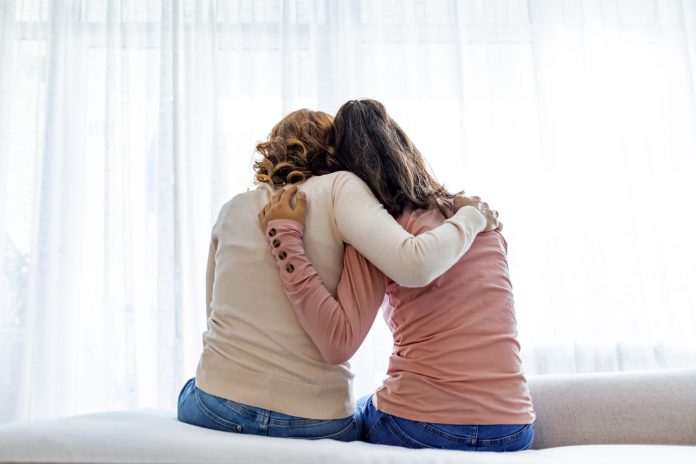
A first-year university student from Mid Canterbury was raped by a man she was dating. Both she and her mother have been dealing with the trauma ever since. They spoke to Susan Sandys.
Mid Canterbury mum Margaret* proudly beamed, pleased to see her oldest daughter leave behind her school years and prepare to take up residence in the halls at Canterbury University.
It was the start of 2023, and she could see 17-year-old Ellen* was eager to study law and make new friends.
Everything that year ended up going just as planned, her daughter was always smiling and happy, she had the world at her feet.
Until early one morning in November, when Margaret got a phone call. It was 3am, and the words came down the line ‘‘Oh mum’’. Ellen’s voice sounded faint, pleading and broken.
Margaret was devastated to find out her daughter was distressed after a date with a man had gone terribly wrong. The man had tried to strangle Ellen, who had been terrified, but got away, and been sick on the side of the road.
In later weeks, Margaret learned Ellen had been raped, and had been lucky to survive the violent attack. It happened on a second date with an American airman that Ellen had met on Tinder.
Both Margaret and Ellen are wanting to speak about the assault, to remind parents and students who are today preparing for that first year of university.
Students need to know about one of the world’s saddest facts – as trusting as you may want to be, there are predators out there waiting to find their next victim.
They also want to offer advice to anyone who ever does find themselves in a similar situation.
For parents – obviously be your child’s advocate and do whatever you can to help. Do not ask too many questions about details if they are not ready to share them, but be a supportive listener at any time they may be ready to talk.
For the victims themselves reach out to someone you trust to tell them, and do not blame yourself.
Ellen recounted the first date had gone well. The pair had met at a restaurant and the man seemed charming and nice. For the start of that ill-fated second date, they were meeting up at the hotel he was staying at in Christchurch. But as soon as she entered the room, she started to get a bad feeling. He seemed different this time.
After the terrifying assault, she was grateful to be alive, and waited for him to fall asleep so she could sneak out.
She is traumatised by the attack, and has not shared the details to anyone but a therapist she is seeing, covered by ACC.
Besides that early morning phone call with her mother, she had at first remained silent.
‘‘I was in shock and didn’t want to believe anything happened,’’ Ellen said.
But about six weeks later, she reached out to the residential assistant in her hall. The principal of the hall then came and talked to her personally, after which she was referred to the university doctor and Christchurch’s The Cambridge Clinic, which provides specialised care and support for anyone who has been sexually assaulted or abused. She was connected to a sexual violence support organisation, which suggested she go to the police.
While reporting the assault had seemed a difficult thing to do at the start, it ended up being the right thing to do.
The police had been incredibly supportive and helpful.
‘‘The onus to prove isn’t on you, if you tell the police, they deal with it even if you only know his first name. They will always take your story as evidence. I had no DNA, and no bruises left after the first week, no text messages. I had nothing, and they took me at my word, and that was very empowering,’’ Ellen said.
‘‘The police were kind of my first saviours in this. They put me at ease and they made me feel like my story was important.’’
As it turned out, knowing the man’s first name and his job was enough for police to track him down in America and speak to his superiors in the airforce. Ellen has not pursued charges, believing this would be a complicated process against someone outside of the country and in the American military.
The journey of healing has been one Margaret has had to take as well, as she was also traumatised by seeing her daughter go through such an experience. And the moment it all began, when she received that phone call, haunts her.
‘‘I keep hearing that little voice. That was one of the worst parts to reconcile with, because you don’t want to ever hear your child say that,’’ Margaret said.
‘‘About seven months into it was when it really hit me what happened, she could have actually died. The police said she was lucky to survive. That just occurs to me, that life is so fragile and it can be taken away,’’ Margaret said.
‘‘It’s violent physically, but also mentally. He took away her power from her, but she’s gaining that back again now. She’s determined to be a survivor, not a victim.’’ Both Margaret and Ellen say their mother-daughter relationship had strengthened since the attack. Ellen agreed the experience had made her stronger, including by reinforcing her goal to help others through her career in law. ‘‘I’m in awe of her,’’ Margaret said.
* not their real name.

Student sexual assault
Research revealed almost 15 per cent of 1540 students surveyed said they had been raped while attending university. Of 431 students who said they had been sexually assaulted, 93 per cent did not disclose it to a health professional, and almost one third did not tell anyone at all. Lead author Melanie Beres at the University of Otago said the study, while published in 2020, was the most recent in New Zealand. ‘‘The rates are consistent with other research conducted internationally, and I’m quite confident they are current,’’ she said. Universities had various initiatives addressing the issue, such as a sexual violence support and prevention centre which was opened at Otago University in 2018.




